When George Segal carved his sculpture of the Depression Bread Line, he captured a time when our country last faced widespread hunger. The sculpture of five destitute men standing in a line waiting for food has reminded generations of what our ancestors endured. The sculpture, which is now part of the Grounds for Sculpture permanent collection in Hamilton NJ, recalls the thousands of hungry who stood at doors of churches and soup kitchens. In the bread lines of the 30’s one person was fed one meal at a time. Although well intentioned, the food delivery system was woefully inefficient.
Today, our best defense to protect lives threatened by the Covid-19 pandemic has been sheltering in place. Unless employed by an essential industry such as logistics or grocery and drug stores, or in a job that can be done from home, too many Americans found themselves unemployed through no fault of their own. And as unbelievable as it is, too many families faced hunger once again.
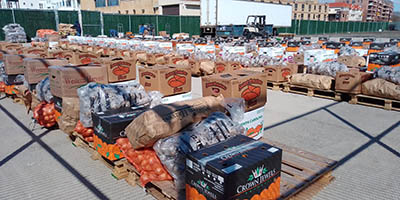 Since the 1930’s, pallets have become a small, but important advancement in material handling and logistics, making it much easier and less expensive to deliver large quantities of food. Today’s response to hunger still relies on the generosity of churches, civil organizations, and neighbors, but current methods of food delivery can provide food to whole families for weeks at a time. This could not be done without the small, but mighty pallet.
Since the 1930’s, pallets have become a small, but important advancement in material handling and logistics, making it much easier and less expensive to deliver large quantities of food. Today’s response to hunger still relies on the generosity of churches, civil organizations, and neighbors, but current methods of food delivery can provide food to whole families for weeks at a time. This could not be done without the small, but mighty pallet.
Communities throughout the country are embracing the pallet to deliver food efficiently to food banks all over the country.
- Baltimore MD
The Maryland Army National Guard’s 1229th Transportation Company in Baltimore MD delivered pallets of food and supplies to schools and recreation centers, where meals were prepared and delivered in drive or walk through lanes. The National Guard soldiers also delivered pallets of personal protective equipment to area hospitals, and moved medical equipment to where it is needed. - California
Despite the widespread hunger that faced the nation, farmers were stuck with surpluses resulting from major business losses with restaurant, hotel, and school closures. The non-profit Food Forward moved pallets of food from farmers who have no way to store the food, moving over 800,000 pounds of week of food produce to agencies who distributed the food. The organization moved pallets of produce from growers, distributors, and wholesalers to its produce warehouse, where the food is then distributed to food banks. Food Forward is recovered palletized food produce on a huge scale – recovering 200 pallets of produce every day, each pallet weighing between 1,000 and 1,500 pounds. - Nationwide
Feeding America is the nation’s largest hunger-relief organization. Through its network of 200 food banks and 60,000 food pantries and meal programs, it is able to feed 40 million people each year. This organization matches excess perishable and non-perishables from grocery manufacturers, retailers, shippers, packers, growers, and government agencies with food banks in all 50 states, Washington DC and Puerto Rico. Food Banks supported in our geographical area include:- New York
Island Harvest in Bethpage NY, Feeding Westchester in Elmsford NY, Long Island Cares in Hauppauge NY, Food Bank For New York City in NYC - New Jersey
Community FoodBank of NJ in Hillside NJ, Mercer Street Friends Food Bank in Ewing NJ, NORWESCAP Food Bank in Phillipsburg NJ, The FoodBank of Monmouth and Ocean Counties in Neptune NJ, Food Bank of South Jersey in Pennsauken NJ - Pennsylvania
Philabundance in Philadelphia PA, Central Pennsylvania Food Bank in Harrisburg PA, Second Harvest Food Bank of Lehigh Valley PA and NE Pennsylvania in Nazareth PA, Chester County Food Bank in Exton PA, Helping Harvest in Reading PA - Maryland
Capital Area Food Bank in Washington DC, Maryland Food Bank in Baltimore MD - Delaware
Food Bank of Delaware in Newark DE
- New York
Pallets as Lawn Art
Local retail and restaurant businesses also starved for business. Facing personal losses and isolation is tough enough. No one wants to come out of the sheltering in place period to find their downtown storefronts boarded up. Rather than focusing on what they can’t do, some communities look to what they could do to help. 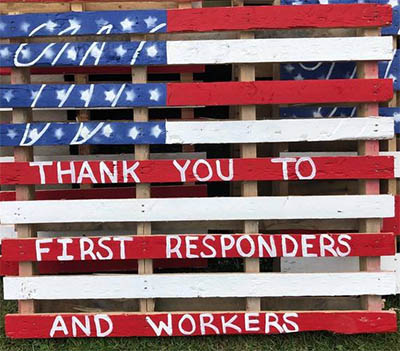 Again pallets play an important role – helping downtown retailers and restaurants while lifting community spirits.
Again pallets play an important role – helping downtown retailers and restaurants while lifting community spirits.
When driving around Westfield NJ you find a visual treat of lawn decorated pallets. They are everywhere – on lawns, porches, at the train station, in front of a National Guard Armory. The towns people are supporting a “We Love Local” campaign. Initiated by the Joe and Audrey Mindak family who paints decorations on used pallets. The sales of the artistically painted pallets are donated to the nonprofit Westfield United Fund’s We Love Local campaign. The decorated pallets are available for $50 donations, and above. After only a couple of weeks, the painted pallets have generated more than $205,000 from more than 700 donors.
Mighty, Reliable and Dependable Pallets
Since World War II, pallets have become the key to logistics and delivery of all retail products, including medical supplies, food, toilet paper. By 1941 when the war started, an estimated 25,000 forklift trucks were in use in the U.S. As lift trucks became more widespread, pallet use was widely adopted. Power operated machines allowed the army to stack palletized supplies higher than could be done manually. Facing scarce labor and the wartime urgency of supplying orders, the Office of the Quartermaster General (OQMG) had to quickly implement better handling methods. Forklift trucks and pallets were clearly the most efficient system for handling supplies including packaged or strapped commodities, saving time, space and labor.
Once again, the mighty, reliable and dependable pallet has helped get us through the 2020 pandemic, delivering food to the hungry, and lifting spirits to the lonely.
Greenway Products & Services, LLC is the largest pallet remanufacturer and recyclers in the New York metropolitan area. We also accept scrap wood and landscaping debris from our customers that we turn into valuable resources. Greenway is a full-service pallet management company. Contact us for a quote today. Visit our website, greenwaypsllc.com or call us at 732-442-0200. We can deliver trailers to you on a moment’s notice throughout the NY-NJ-PA-MD-DE area.

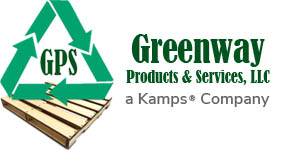
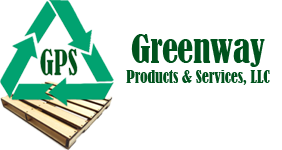
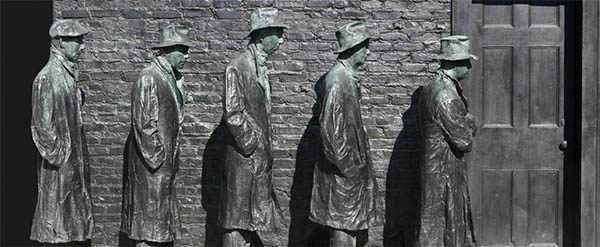
Leave A Comment